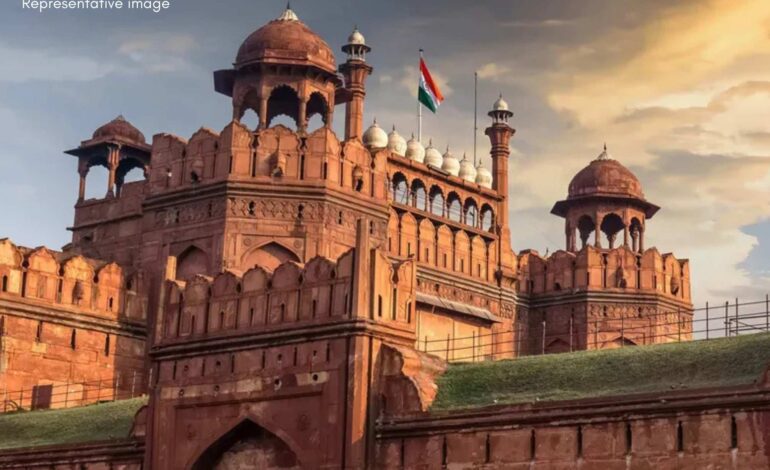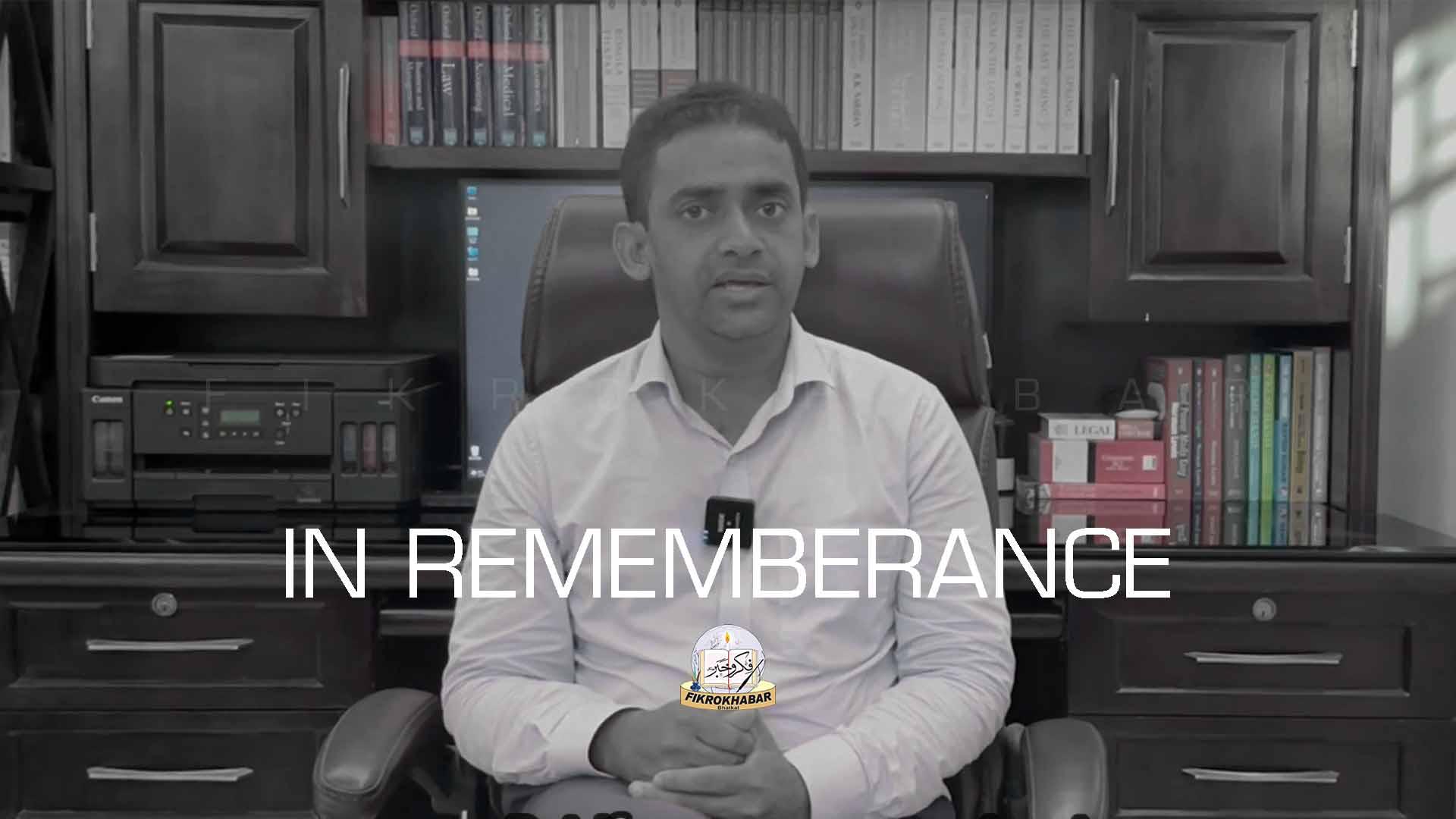The Great Role of Muslims in India’s Freedom Struggle

A Story Often Forgotten
When we talk about India’s independence, we often hear about famous leaders like Mahatma Gandhi, Jawaharlal Nehru, and others. But there is an important part of our history that many people do not know well – the huge role that Muslims played in fighting for India’s freedom from British rule.
From the very first day the British came to India until August 15, 1947, when India became free, Muslim leaders, scholars, soldiers, and common people fought bravely against foreign rule. Their sacrifices, struggles, and contributions helped shape the India we live in today.
How Islam First Came to India
The story of Muslims in India begins very early – right after Prophet Muhammad ﷺ started spreading Islam. Arab traders reached the Malabar Coast (today’s Kerala) in the first century of Islam. These were not conquerors but peaceful merchants who came for trade.
There is a famous story about a local king in Kerala who saw the miracle of the moon splitting. After witnessing this, he accepted Islam and helped build one of India’s first mosques – the Malik ibn Dinar Mosque.
Later, in 712 CE, Muhammad bin Qasim entered Sindh (now in Pakistan) under orders from the governor of Iraq. His just character and good behavior impressed the local people so much that many of them accepted Islam voluntarily.
Through these early contacts – both through trade and conquest – Islam peacefully spread across different parts of India.
Muslim Rule: Seven Centuries of Contribution
From 713 CE to 1857 CE – for more than 700 years – Muslims ruled large parts of India through various dynasties:
- Ghurid Dynasty
- Slave Dynasty
- Tughlaq Dynasty
- Lodi Dynasty
- Mughal Dynasty
These Muslim rulers did not just govern – they transformed India:
- They built magnificent architecture (like the Taj Mahal)
- They developed trade and commerce
- They promoted arts, literature, and culture
- They established systems of justice and fought against oppression
- They encouraged religious tolerance and unity
Sufi saints played a special role in spreading Islam peacefully. Through their love, wisdom, and good character, they touched people’s hearts and many chose to accept Islam.
The British Arrival: From Traders to Rulers
Early Days (1601-1707)
The British first came to India in 1601 – not as conquerors but as traders. Their ships landed at Surat in Gujarat where they asked for permission to trade.
Initially, they were just a small East India Company looking for business opportunities. They had been trading with Holland before, but due to political problems, they needed a new market.
The British gradually established trading posts in:
- Surat (1601)
- Bombay (Mumbai) – their major trading center
- Bengal (1662) – which became very important for their expansion
For over 100 years, they remained mainly traders under the strong Mughal Empire. Emperor Aurangzeb died in 1707, and this marked the beginning of Mughal decline.
From Trade to Conquest (1757)
The real turning point came with the Battle of Plassey on June 23, 1757. This battle was fought between:
- Nawab Siraj-ud-Daulah (ruler of Bengal)
- Robert Clive (British East India Company)
The Betrayal: The British won this battle not through superior fighting, but because of treachery. Mir Jafar, who was the Nawab’s military commander, betrayed his own master and secretly joined hands with the British.
This betrayal had terrible consequences:
- Siraj-ud-Daulah was defeated and killed
- The British took control of Bengal
- 2 lakh (200,000) Muslim scholars were killed in Bengal
- This marked the beginning of British rule in India
Muslim Resistance: The Fight Begins
Tipu Sultan – The Tiger of Mysore (1751-1799)
One of the greatest heroes of Indian resistance was Tipu Sultan, the ruler of Mysore. His real name was Fateh Ali Khan and he was the son of Hyder Ali.
Tipu’s Famous Quote:
“It is better to live one day as a lion than a hundred years as a jackal.”
This brave ruler had a clear policy: “We will never make peace with the British, nor will we ever bow before them”.
Tipu’s Wars Against British:
- First Anglo-Mysore War (1767-69)
- Second Anglo-Mysore War (1780-84)
- Third Anglo-Mysore War (1790-92)
- Fourth Anglo-Mysore War (1799) – where he died fighting
Tipu Sultan was not just a warrior but also a great administrator. He:
- Modernized his army with rocket technology
- Promoted trade and industry
- Built efficient government systems
- Encouraged education and development
In the final battle at Seringapatam in 1799, Tipu was again betrayed by Mir Sadiq (similar to Mir Jafar). When Tipu died fighting sword in hand, the British declared: “From today, India belongs to us!”
The Fall of Delhi (1803)
In 1803, the British captured Delhi. The last Mughal emperor, Bahadur Shah Zafar, was reduced to a powerless figurehead. Instead of fighting, he agreed to let the British rule while he remained emperor in name only.
Later, the British exiled him to Rangoon (Myanmar) where he died in 1862. His famous sad poem reflects his pain:
“How unfortunate is Zafar, who could not get even two yards of land in his beloved homeland for burial.”
Islamic Movements: Religious Scholars Lead the Fight
Shah Waliullah (1703-1762): The Great Reformer
Shah Waliullah was one of India’s greatest Islamic scholars. Born in Delhi, he brought Hadith (Prophet’s teachings) to India and trained many students.
His contributions included:
- Translating the Quran into Persian (first complete translation by an Indian scholar)
- Training Islamic scholars across the country
- Writing over 50 books on Islamic law, spirituality, and politics
- Warning rulers about the dangers of British expansion
Even before the British became powerful, Shah Waliullah saw the danger and started preparing Muslims intellectually and spiritually to resist foreign rule.
Shah Abdul Aziz (1806): First Declaration of Resistance
Shah Abdul Aziz, son of Shah Waliullah, issued a historic fatwa (religious decree) in 1806. He declared that:
- India under British rule had become Dar-ul-Harb (land of war)
- It was the religious duty of Muslims to resist British rule
- Muslims should prepare for organized struggle
This was the first formal religious call for resistance against the British – 51 years before the 1857 revolt!
Tehreek-e-Shaheedain: The Martyrs’ Movement
Led by Syed Ahmad Shaheed and Syed Ismail Shaheed, this movement fought against both the British and oppressive local rulers.
After Syed Ahmad was martyred at Balakot, his students Maulana Wilayat Ali and Maulana Inayat Ali continued the struggle. They traveled city by city across India, inspiring people to join the freedom movement.
The Great Revolt of 1857: Muslims Lead the Uprising
The 1857 revolt was not just a “sepoy mutiny” – it was India’s First War of Independence. Historical records show that Muslims played the leading role in this uprising.
Key Muslim Leaders of 1857:
1. Bahadur Shah Zafar – The last Mughal emperor who became the symbolic leader
2. Maulvi Ahmadullah Shah – Known as the “Lighthouse of Rebellion”
- British put a reward of Rs. 50,000 on his head (dead or alive)
- He liberated Faizabad and kept it free from British rule for one year
- British historian called him “one of the greatest heroes” of 1857
3. General Bakht Khan – The real military leader in Delhi who organized both Hindu and Muslim rebels
4. Begum Hazrat Mahal – The brave queen of Awadh who led the resistance in Lucknow
5. Prince Firoz Shah – Mughal prince who fought across multiple battlefields and supported other rebel leaders
The Price of Resistance
The British response was extremely brutal:
- Thousands of Muslims were hanged without trial
- Roads from Delhi to Meerut were lined with gallows
- Entire cities were emptied of Muslim populations
- Muslims were sent to Kala Pani (Andaman Islands) or executed
- 200,000 scholars were killed in Bengal alone
For 50 years after 1857, Muslims continued to lead the resistance movement, either sacrificing their lives or working underground for freedom.
20th Century: Muslims Join National Movement
The Khilafat Movement (1919-1924)
This was one of the most important movements where Muslims and Hindus united against British rule.
Leaders of Khilafat Movement:
- Maulana Mohammad Ali and Maulana Shaukat Ali (the Ali Brothers)
- Maulana Abul Kalam Azad
- Hakim Ajmal Khan
- Dr. Mukhtar Ahmad Ansari
Mahatma Gandhi saw this as a great opportunity to unite Hindus and Muslims. He joined the Khilafat Movement and linked it with his Non-Cooperation Movement.
This created the powerful slogan: “Hindu-Musalman ki Jai!” (Victory to Hindu-Muslim unity)
Key Muslim Freedom Fighters of 20th Century:
1. Maulana Abul Kalam Azad (1888-1958)
- Youngest President of Indian National Congress (at age 35)
- Strongly opposed partition of India
- Published revolutionary newspapers Al-Hilal and Al-Balagh
- India’s first Education Minister after independence
- Bharat Ratna award winner
Famous Quote: “India is our homeland. We were born here, we will live here, and we will die here.”
2. Khan Abdul Ghaffar Khan – Known as “Frontier Gandhi”
3. Ashfaqullah Khan – Revolutionary who was hanged at age 27
4. Maulana Hasrat Mohani – Poet and freedom fighter
5. Rafi Ahmed Kidwai – Senior Congress leader
6. Dr. Zakir Husain – Later became President of India
Other Major Movements with Muslim Leadership
- Home Rule Movement
- Non-Cooperation Movement (1920)
- Civil Disobedience Movement
- Quit India Movement (1942)
- Protests against Jallianwala Bagh Massacre (1919)
Independence and Partition (1947)
On August 15, 1947, India finally became free. But this freedom came with the painful partition that created Pakistan.
Many Muslim leaders like Maulana Azad opposed partition and chose to stay in India. They believed:
- India was their motherland
- Muslims had lived here for over 1000 years
- They had sacrificed everything for this land
The Real Message of Freedom
The original speaker in the Urdu speech emphasized that freedom is not just political – it is also mental and spiritual.
What Does Real Freedom Mean?
1. Freedom from Mental Slavery:
- Not copying foreign cultures blindly
- Maintaining our own Islamic identity
- Not becoming slaves to Western lifestyle
2. Religious Freedom:
In Islam, every human is born free. Hazrat Umar (RA) said: “Since when have you enslaved people, when their mothers gave birth to them as free?”
3. The Purpose of Islamic Freedom:
As Hazrat Rabee bin Amer (RA) told the Persian king:
“Allah has sent us to take people out from the slavery of other humans to the worship of One Allah, and from the tyranny of false religions to the justice of Islam.”
Lessons for Today
The speaker gave several important messages for modern Muslims and Indians:
1. Remember Your History
- Know your ancestors’ sacrifices
- Don’t let anyone erase this history from textbooks
- Young people must learn about Muslim contributions
2. Maintain Your Identity
- Give children both religious and worldly education
- Don’t abandon Islamic values for Western lifestyle
- Live peacefully with all communities while staying true to your faith
3. True Patriotism
- Work for the betterment of India
- Show love and respect to fellow citizens
- Reply to hatred with love and good behavior
- Build bridges, not walls between communities
Conclusion: A Legacy of Sacrifice
The historical evidence is clear: Muslims played a central and leading role in India’s freedom struggle from the very beginning. Research shows that:
- 65% of all freedom fighters mentioned on India Gate in Delhi have Muslim names
- Muslims participated in larger numbers compared to their percentage of population
- From 1757 to 1947, Muslims were at the forefront of resistance movements
Famous writer Khushwant Singh said: “Indian Freedom is written in Muslim blood. Their participation in the freedom struggle was much more, in proportion to their small percentage of population.”
The message of August 15, 1947 is not just about political independence. It is about:
- Remembering the sacrifices of all communities
- Living together in peace and harmony
- Building a strong, united India where everyone’s contributions are respected
- Passing on true history to future generations
As we celebrate Independence Day every year, we must remember that India’s freedom was not the achievement of any single community alone. It was the combined struggle of Hindus, Muslims, Sikhs, Christians, and many other communities who stood united against foreign rule. However, it is important to recognize that this fight for freedom was first ignited and sustained with great sacrifice by Muslims, especially the dedicated ulama (Islamic scholars), who were among the earliest to raise their voices and lay down their lives in the cause of independence. Their leadership, courage, and sacrifices laid the foundation for a united movement that included all communities.
The blood, sweat, and sacrifice of Muslim freedom fighters is an inseparable part of India’s independence story. Their legacy reminds us that true freedom comes when all citizens – regardless of religion – work together for the progress and prosperity of their motherland.





